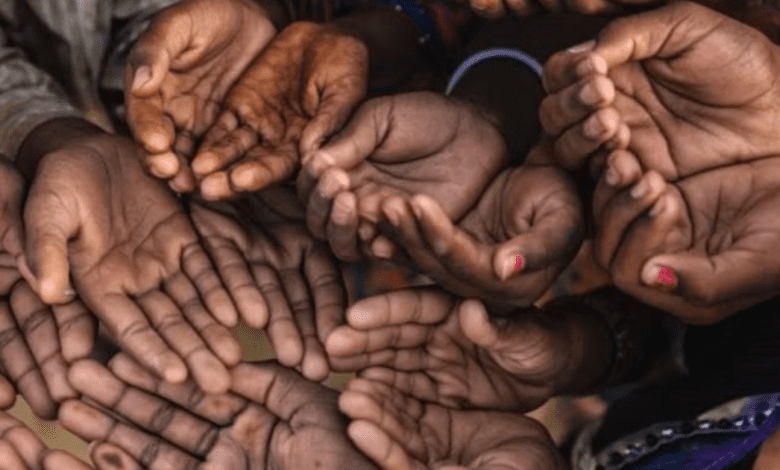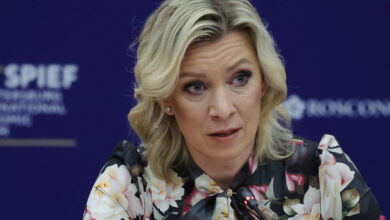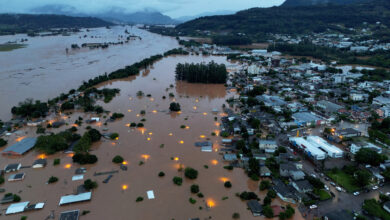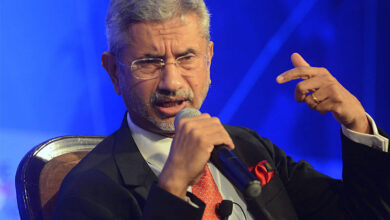India donates $1 million to combat hunger and poverty
The IBSA projects aim at promoting food security, addressing HIV/AIDS, and providing access to safe drinking water

India has donated a sum of USD 1 million to a fund set up by India, Brazil, and South Africa, with the goal of reducing hunger and poverty. The cheque for USD 1 million was presented to Dima Al-Khatib, the Director of the UN Office for South-South Cooperation (UNOSSC), by Ruchira Kamboj, India’s Permanent Representative to the UN. This contribution is directed towards the India, Brazil, and South Africa Facility for Poverty and Hunger Alleviation Fund (IBSA Fund).
During the event, Ms. Kamboj emphasized that India’s G20 Presidency is centered around the principle of “development of the people, by the people and for the people”. She further stated that India is dedicated to backing the IBSA Fund, as it has positively influenced the lives of millions in the Global South and bolstered the spirit of South-South cooperation.

India has contributed over USD 18 million to the IBSA Fund so far
The IBSA nations – India, Brazil, and South Africa – each donate one million dollars annually to the Fund. This is done in a spirit of partnership and support for projects in developing countries that are led by the South, demand-driven, and transformational, as per a press release by the Permanent Mission of India to the UN.
Since its inception in 2004 and becoming operational in 2006, India’s cumulative contribution to the IBSA Fund has surpassed USD 18 million. The UNOSSC acts as the Fund Manager and Secretariat of the IBSA Fund.
The IBSA Fund backs projects that embody tangible expressions of solidarity. These projects aim at promoting food security, addressing HIV/AIDS, and providing access to safe drinking water, all contributing towards the achievement of the Sustainable Development Goals.
To date, the IBSA Fund has allocated USD 50.6 million, supporting 45 projects across 37 countries of the global South. This year, the IBSA Fund has already approved three projects, namely ‘Rural Electrification using Micro-grids’ in Southern Belize, ‘Empowering Women and Youth to Drive Sustainable Agriculture’ in South Sudan, and ‘Investment in Agri-business development in Mubadrti’ in Palestine.
The Board of Directors of the Fund convened last month and approved the three proposals for Belize, Palestine, and South Sudan, amounting to USD 3 million in new funding. They also approved the design of a project in Mali to commence in 2024.
The project in Belize aims to improve access to renewable energy in marginalized communities in the Toledo district of Belize, which has the highest poverty rate in the country. The project plans to provide solar equipment to 166 households, a school, and a primary health center.
The project in South Sudan intends to boost vegetable and fish production and widen distribution markets to enhance nutrition, food security, and livelihoods in the Central Equatorial State. Support will be provided to eight vegetable production groups comprising 48 heads-of-household, and four fisheries groups of 30 heads-of-household.
The project in Palestine seeks to generate sustainable job opportunities for women, youth, and recent graduates in the agricultural sector and its production chain. This involves the production of market-oriented agricultural commodities and food processing.
Approximately 70 farmers, unemployed youth, and engineers will enhance agricultural productivity in Palestine through the proposed investments in agri-business. This will be achieved through comprehensive training programs on farming techniques, crop management, harvesting methods, post-harvest handling, processing and packaging, marketing, and business management.
In Africa, the Board endorsed the detailed design for a project in Mali’s Climate Change Resilient Community Farms and Women’s Empowerment in Baguinéda Irrigated Zone, set to begin in 2024.
This project aims to fortify the resilience of women producers and youth against the adverse effects of climate change. This will be done through the renovation of two agribusiness centers, the provision of improved seeds and capacity building to over 7,000 women producers. Equipment will also be provided to four youth Economic Interest Groups, and solar pumping systems will be installed in five market garden areas.
You might also be interested in – India’s ₹771 crore boost to Maldives amidst troop controversy



